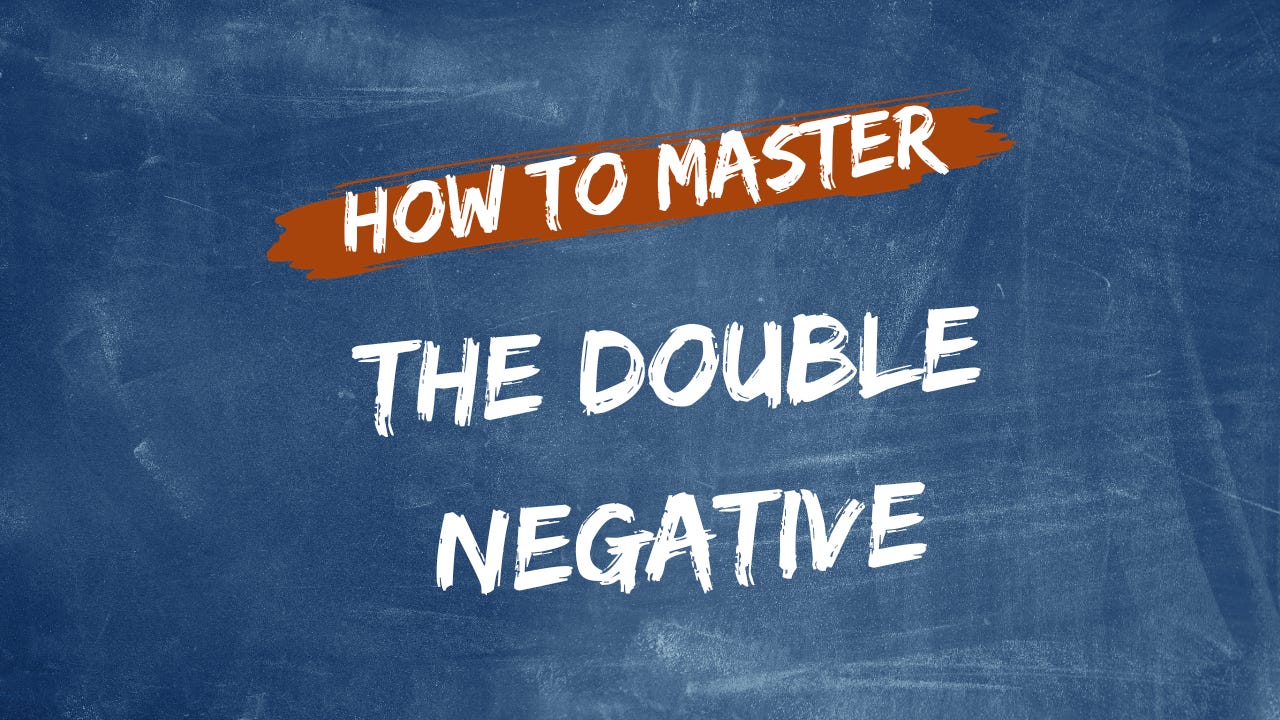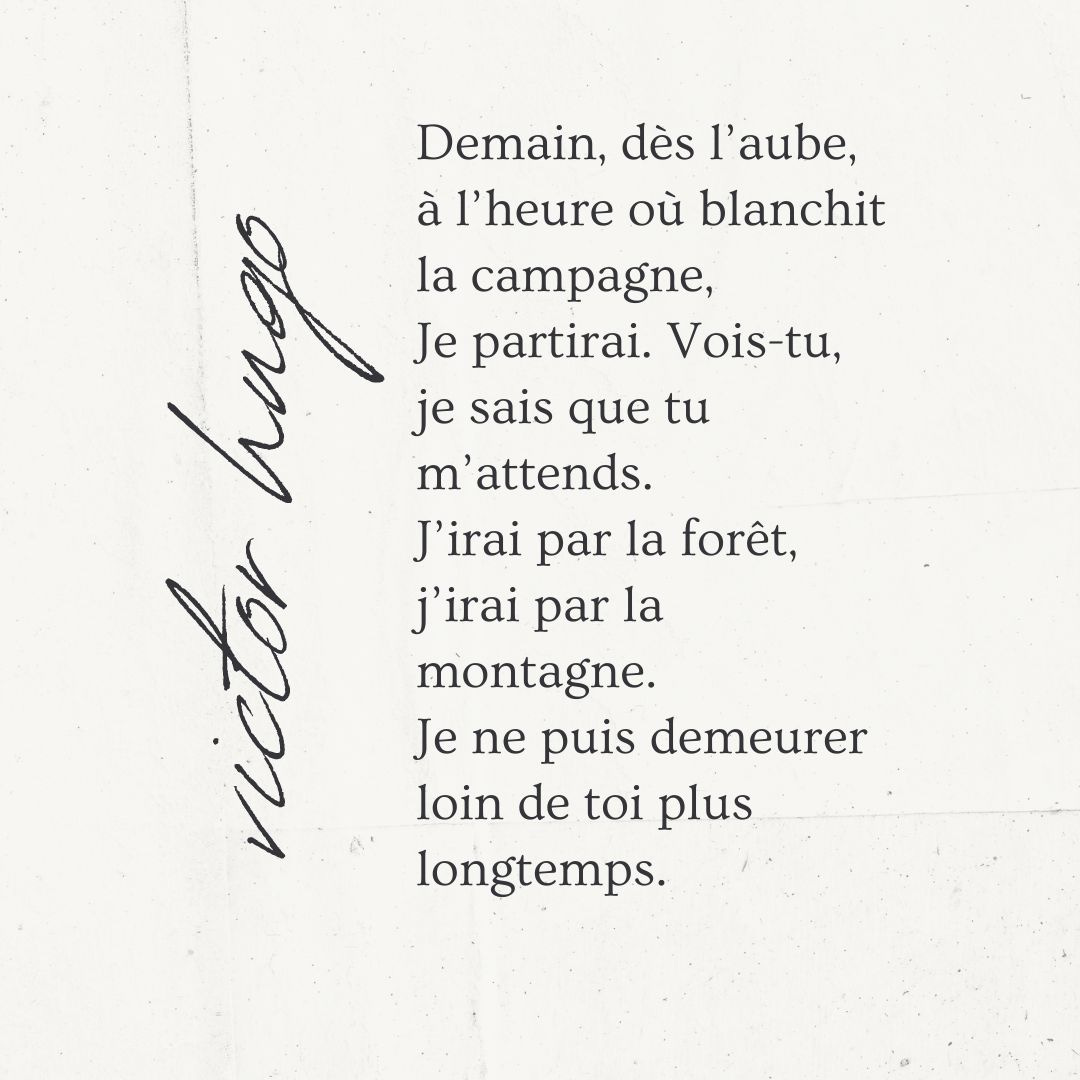Let’s start with the obvious: most francophones drop the second negative when speaking French.
So, instead of saying:
Je n’ai pas le temps
We say:
J’ai pas le temps
You can sound more natural when speaking French if you also drop the double negative.
But, unless your French is advanced, I suggest using the double negation when you’re first learning French. When you feel you can carry a conversation with a certain degree of fluency, you can start dropping the ne. Otherwise, it will sound like you’re trying too hard to speak like a native.
Remember to only drop the ne, not the second negation!
A common mistake made by Spanish speakers and speakers of other romance languages, and people who have studied them, is to drop the second negative, but keep the ne.
For example:
Je ne suis allé là-bas
I didn’t go there
This is an important mistake to correct!
Je ne suis pas allé là-bas
If you drop the double negative, can only remove the ne, not the second negative word.
You have to say, when using a simple negation:
Je suis pas allé là-bas
When to use the double negative
Using a double negation in conversation is not a mistake and does not sound as outdated as using nous instead of on.
However, as I explained, most French speakers naturally drop the ne in most situations.
Even though most of the time, the double negative is omitted, we sometimes add it to clarify the meaning. But we use it in a different way.
For example:
Je vous appelle à propos de mon abonnement. Je voulais ne pas le renouveler.
I am calling about my subscription. I wanted to not renew it.
Here, there is difference in the word order:
Je ne voulais pas le renouveler
I didn’t want to renew it.
Je voulais ne pas le renouveler
I wanted to not renew it.
So, we’re using the ne to make sure the other person understands our request, as in the English, “to not do something.”
To read about the usage of “nous” in French, go to:
Other negative words
⚠️ Be careful: the double negative can be used with other words than pas. For example rien, nulle part, jamais and personne (no one).
Don’t say:
Personne ne savait
pasd’où il venait
Because personne (no one) is a negative word, you would end up with three negations!
Instead, say:
Personne ne savait d’où il venait
No one knew where he was from
With personne and ne, there are already two negatives. If you skip one, it would be the ne.
Personne savait d’où il venait
⚠️ In writing, always keep the double negative, including texting and emails, unless it is for very short messages to friends.
When only ne is used
When reading, you might come across cases where only the ne is used. Here are some examples.
Ne… Que
If you combine ne and que, the meaning is not a negation, but rather only. This usage is more formal.
Je n’ai qu’un livre
I have only one book
Il ne voit que des films étrangers
He only watches foreign movies
Je n'ai lu que deux pages pour te faire plaisir
I read only two pages to make you happy
Ne explétif
When reading in French, you might also come across a ne that doesn’t seem to be there for any good reason.
Let’s look at a very classic example to understand what this ne is doing.
Je crains qu’il ne soit trop tard
I fear that it’s too late
As you can see, the phrase is not negative. This ne is there for emphasis. It’s called the ne explétif, meaning that it’s not indispensable to the meaning or syntax of the sentence, and doesn’t have a negative meaning.
This ne explétif is used almost exclusively in writing. It’s often used in comparisons, with adverbs such as:
Mieux que
Pire que
It’s also used with:
Avant que
Moins que
Craindre que
Avoir peur que
Redouter que
Éviter que
Empêcher que
Let’s look at a few examples.
Il est bien moins grand que je ne le pensais
He’s much smaller than I thought
Nous craignons qu’il n’y ait encore plus de victimes dans l’accident
We feared there would be more victims in the accident
Il faut éviter qu’un autre drame ne se produise
We have to avoid another tragedy (happening)
Il faut partir avant qu’il ne soit trop tard
We have to leave before it’s too late
Poetic negation
Finally, it’s also possible to find a simple negation using ne used in a poetic way, in writing only. When speaking, only drop the ne, never drop the second negative.
Je ne puis demeurer loin de toi plus longtemps
I can't stay away from you any longer
This is a quote from the famous poem by Victor Hugo, Demain, dès l’aube (read the first part above).
Exercise
Write in French, using ne, with or without a second negation.
We need to go before it’s too late.
I only have one thing on my mind (meaning: there’s only one thing on my mind).
I don’t believe it.
There’s nobody here.
I’m not going anywhere.
Poetic: I can’t live without you.
There is less (of it) than I thought.
I fear that it’s all lost.
No one knew the truth.
I don’t believe it.
Answers
Nous devons partir avant qu'il ne soit trop tard.
Je n'ai qu'une chose en tête
Je n'y crois pas.
Il n'y a personne ici.
Je ne vais nulle part.
Je ne puis vivre sans toi.
Il y en a moins que je ne le pensais.
Personne ne connaissait la vérité.
Je crains que tout ne soit perdu
Je n'y crois pas.








J'ai eu seulement une réponse correcte, mais j'aime ce petit quiz!